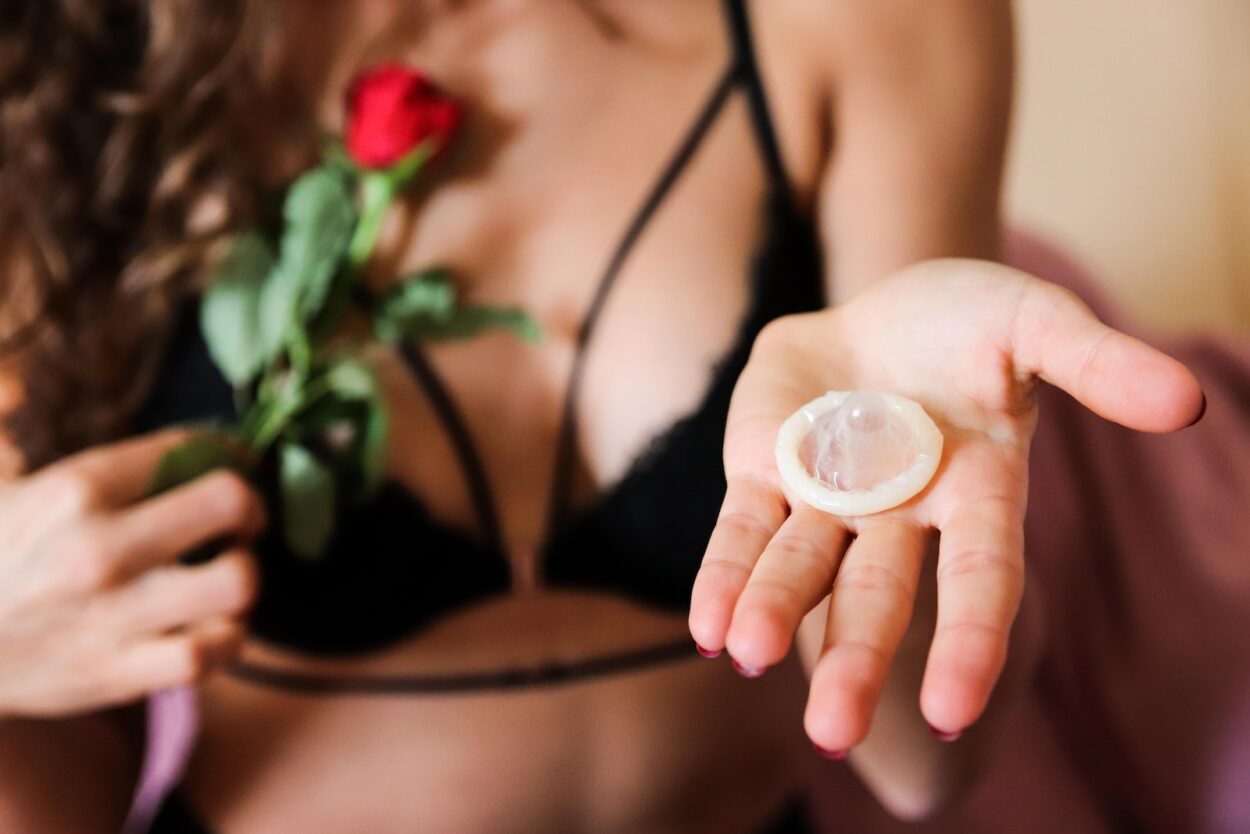Trichomonas vaginalis is a sexually transmitted infection (STI) that can affect women and men. It is easy to prevent and is usually easy to treat.
Use latex condoms every time you have sex. This can protect against trichomoniasis and other STDs. Other STI prevention methods like spermicides, the pill and douching also help.
Do not have sex while you are being treated for trichomoniasis
Trichomoniasis is an infection that spreads through unprotected sex, sharing sex toys, and mutual masturbation. It can also be passed on during pregnancy, birth or breastfeeding – This information was prepared by the portal team https://flirt-sexy.com. It can be very hard to tell if someone has trichomoniasis because they may not have any symptoms.
To test for trichomoniasis, your healthcare provider will do a physical exam. This will probably include a vaginal examination and a sample of your discharge using a cotton swab. They will then look at this sample under a microscope to see if you have trichomonads. They may also want to test for other STIs and BBVs at the same time.
Most people can get trichomoniasis without having any symptoms at all. However, if you do have symptoms it is important to get treated straight away. This will stop you from passing the infection on to your sexual partners and it can help prevent complications like a recurrence of the infection or other health problems.
Your healthcare provider will prescribe a course of antibiotics to treat the infection. The most common treatment is metronidazole (Flagyl), which is available as a tablet that you can take by mouth. You will need to take the antibiotics as prescribed, usually twice a day for 5 to 7 days. Make sure your current and any previous sexual partners are also treated so that you don’t pass the infection on to them.
Do not have sex for 7 days after your treatment
Trichomoniasis is a common sexually transmitted infection (STI) caused by a tiny parasite. It can affect the vagina, the tube that carries urine and semen from the penis (the urethra) or both. In women, trichomoniasis can cause a foul-smelling vaginal discharge and itching. In men, it may lead to painful urination and a condition called chronic prostatitis. Trichomoniasis can also make it harder to get pregnant and can increase the risk of having a low birth-weight baby if a woman gets it while she is pregnant.
In most cases, a health professional can diagnose trichomoniasis by taking a sample of the genital discharge. A swab can be collected from inside the vagina or, for males, from the tip of the penis. It is also possible to test for trichomoniasis in the blood or by having a pap smear.
If you have trichomoniasis, your doctor can prescribe antibiotics to treat it. Usually you will be given either metronidazole or tinidazole, which are pills that can be taken by mouth. You should not drink alcohol while you are taking these medications.
If you have trichomoniasis, it is important that your sexual partners also take antibiotics to prevent them from getting the infection. It is possible to get trichomoniasis again even after you have been treated, so it’s important that you practice safe sex and use condoms for oral, anal and vaginal sex.
Do not have sex for 3 months after your treatment
Trichomoniasis, also known as “trich,” is a sexually transmitted disease that spreads through unprotected sex—which means vaginal, oral or anal sex. It is caused by a parasite called Trichomonas vaginalis and can cause itching, odor or discharge.
Getting treatment for trichomoniasis is quick and easy. Your nurse or doctor will give you medicine to treat the infection, usually metronidazole or tinidazole. Both of these drugs are antibiotics. You may have to take both, but most people only have to take one pill. You will have to stop having sex until the medication finishes and your symptoms are gone. It’s important to tell your sex partners about the infection and get them treated too, even if they don’t have symptoms.
It is very possible to get trichomoniasis again, even after you’ve been treated. If you get the infection again, it’s best to practice abstinence or use condoms with a water-based lubricant. It’s also important to have regular sexual health checks and a routine pelvic exam.
A recurrence of trichomoniasis increases your chances of getting other STIs like Chlamydia or HIV. Regular testing and using protection (condoms or a water-based lubricant with sex toys) can help to reduce your risk of getting other STIs. It’s also good to talk to your sex partner about their sex history and practice safe sex.
Do not have sex for 6 months after your treatment
Trichomoniasis can be spread by unprotected vaginal sex, insertion of fingers into the vagina or sharing sex toys. It can also be passed on through mutual masturbation and sharing a towel (parasites can live on it for up to a few hours). Using condoms may reduce the chances of getting or spreading trichomoniasis, but it is still possible, because the parasite can infect other areas than the sexual organs, such as the throat and rectum. It is also possible to pass trichomoniasis to partners through unprotected anal, oral and vaginal sex.
Some symptoms of a trichomoniasis infection are a fluid from the vagina in women and the urethra (the opening of the penis) in men, which can be a foamy or yellowish-green discharge. Many people will not have any symptoms, especially if the infection is mild. However, if a woman gets trichomoniasis while pregnant, it can cause a health problem for the baby.
All sex partners should be treated for trichomoniasis, even if they do not have any symptoms. This helps to prevent them from developing problems and passing the disease back to you or others. You can get re-infected with trichomoniasis even after treatment, so it is important to use a condom every time you have anal, oral or vaginal sex. This will lower your risk of other STIs, including HIV.




Leave a Comment